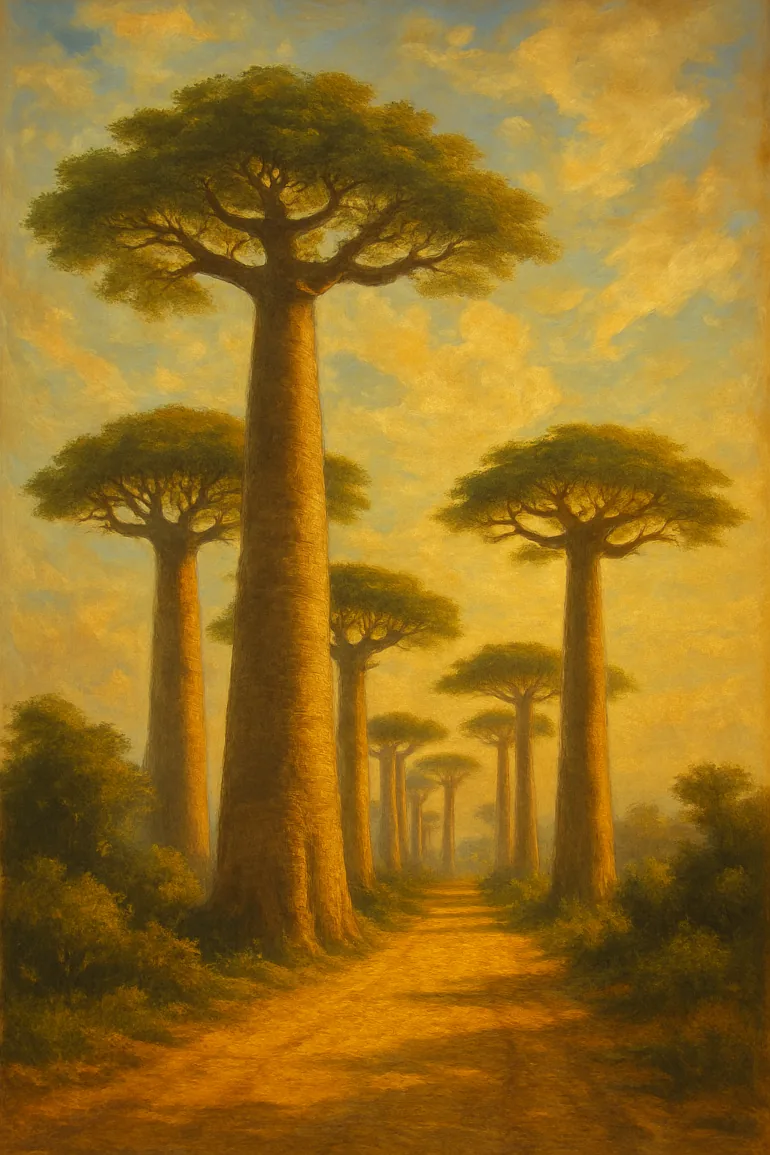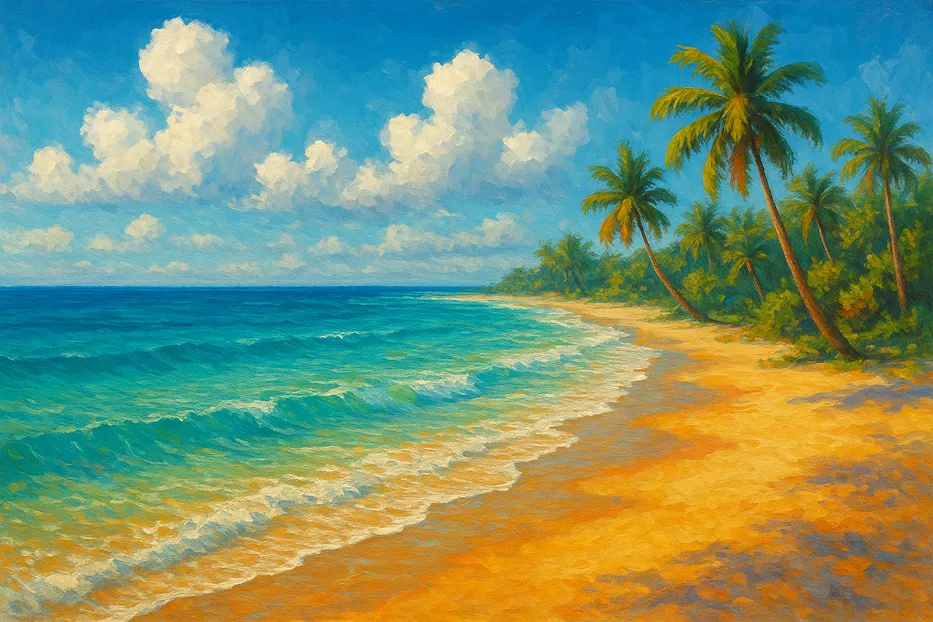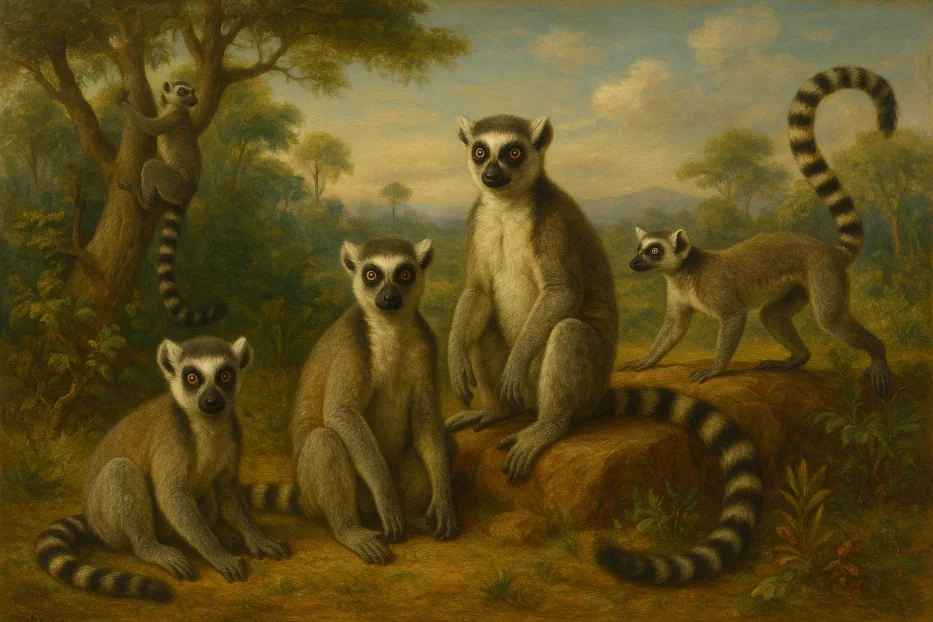Madagascar, a land of remarkable contrasts and astounding biodiversity, is the world’s fourth-largest island.
Situated in the Indian Ocean about 400 kilometers (250 miles) off Africa’s southeastern coast, Madagascar spans approximately 592,796 square kilometers (228,880 square miles). It ranks just behind Greenland, New Guinea, and Borneo among the world’s largest islands. Despite this, Madagascar’s vast landscapes and extraordinary biological richness set it apart, making it one of the most fascinating places on Earth.
Table of Contents
A Land Apart
Separated from mainland Africa by the Mozambique Channel, Madagascar has been isolated for nearly 90 million years. This separation has created a living laboratory of evolution. About 90% of the plant and animal species here are found nowhere else on the planet. From the iconic lemurs leaping through the canopy to the towering baobab trees silhouetted against the sky, the incredible island’s wildlife and ecosystems are a testament to nature’s creativity.
Diverse Landscapes
The geography of the world’s fourth-largest island is as varied as its wildlife. The central highlands dominate the island’s heart, rising dramatically to Maromokotro, its highest peak, at 2,876 meters (9,436 feet). These rugged plateaus give way to lush eastern rainforests that thrive on moist winds blowing in from the Indian Ocean. The east is home to dense tropical forests rich with rare orchids and chameleons.
By contrast, the western and southern regions are much drier, with spiny forests and sweeping savannas. Here, you’ll find the otherworldly Avenue of the Baobabs: a natural monument where centuries-old trees line dusty tracks like ancient sentinels. Along Madagascar’s extensive rivers and lakes, communities have practiced rice cultivation for generations, shaping both the land and culture.

The Five Largest Islands in the World
To put Madagascar’s size in perspective, here are the five largest islands on Earth:
| Rank | Island | Area (sq km) | Area (sq mi) | Country or Territory |
|---|---|---|---|---|
| 1 | Greenland | 2,166,086 | 836,330 | Denmark (Autonomous) |
| 2 | New Guinea | 785,753 | 303,381 | Indonesia, Papua New Guinea |
| 3 | Borneo | 748,168 | 288,869 | Indonesia, Malaysia, Brunei |
| 4 | Madagascar | 592,796 | 228,880 | Madagascar |
| 5 | Baffin Island | 507,451 | 195,928 | Canada |
Although Madagascar ranks fourth, its isolation has given it an outsized role in scientific research and conservation.
A Biodiversity Hotspot
Madagascar’s endemic species range from the smallest chameleon on Earth to countless insects and rare birds. Lemurs alone number over 100 distinct species, each adapted to a specific habitat niche. Botanists and ecologists flock here to study the island’s unique ecosystems, which offer insights into evolution and resilience.
Yet this natural treasure faces significant challenges. Deforestation, slash-and-burn agriculture, and habitat fragmentation threaten many species. Conservation efforts, including protected reserves and community-based projects, are working to balance human needs with environmental protection. Travelers can support these efforts by choosing responsible tours and contributing to local conservation programs.
Culture and Traditions of Madagascar
Madagascar’s culture is a rich blend of African and Austronesian heritage, shaped by centuries of migration and trade. The Malagasy people share a deep respect for the land and ancestors, expressed through traditions such as famadihana (the turning of the bones) and vibrant music and dance.
The Malagasy language, with roots in Southeast Asia, unites communities across the island despite many regional dialects. Visitors will find warm hospitality, colorful markets, and crafts that reflect the island’s unique fusion of cultures and environments.
Plan Your Madagascar Adventure
Beyond its biodiversity, the world’s fourth-largest island invites exploration through its culture and history. Influences from Africa, Southeast Asia, and Europe blend in Malagasy traditions, cuisine, and language. Visitors can experience vibrant markets, music, and coastal villages that reflect centuries of maritime exchange.
Whether you’re captivated by the call of the indri echoing through the rainforest or the stark beauty of the baobab plains, Madagascar is a destination that inspires wonder. It is a place where geography and evolution have conspired to create an island like no other.
If you’re dreaming of discovering the world’s fourth-largest island, Madagascar promises experiences as vast and unforgettable as its landscapes.


